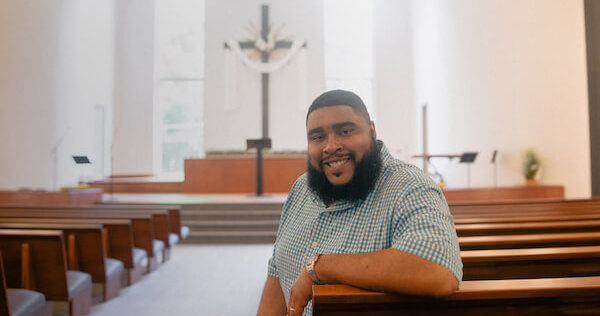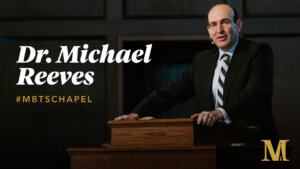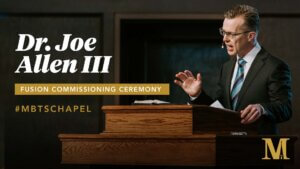With renewed interest in continuing theological education among pastors and church staff members, Midwestern Seminary has seen a resurgence of interest in its post-graduate training programs. According to Thor Madsen, dean of doctoral studies at MBTS, both the seminary’s D.Min. and its Ph.D. programs continue to be popular options among ministry leaders.
“It is encouraging to see the desire many local church leaders have to continue in their academic journeys, gaining and sharpening the skills needed in light of challenges presented in present-day ministry contexts,” Madsen said. “What is more, the time spent pursuing additional degrees and the focus and resolve it requires bodes well for the formation of students’ character and many of the intangible qualities which mark the lives of ministry leaders.”
On such student is Carlos Smith, lead pastor at The Journey Church – Hanley Road in University City, Missouri. Recently, Carlos sat down to discuss his ongoing work in Midwestern’s doctoral program and its impact on his day-to-day role as a lead pastor within a local church.
Q: Carlos, thank you for sharing with us. Could you reflect a bit on where you in your degree program and your ministry role?
A: Thank you for the opportunity to share. I am approaching the writing phase of my doctoral studies at MBTS. I only have Dissertation Seminar remaining and am currently working on theological German. I can see the light at the end of the tunnel; I am excited to be so close to working on my dissertation.
As far as ministry, I currently serve as the lead pastor of The Journey Hanley Road in University City, Missouri. The Journey is a multisite congregation comprised of five churches across the St. Louis metro area. My congregation is in the shadow of Washington University and is situated in one of the most diverse cross sections of St. Louis. It’s a really great place to serve.
Q: Carlos, you’re intending to write a dissertation on the intersection of theology and mental disability. How did this become a passion for you?
A: People with mental disabilities have always been a part of my life. I have a cousin who has cognitive disabilities and Cerebral Palsy. He is very dear to me. Also, during college, I worked for Easterseals of Northeast Indiana as a residential trainer for individuals with physical and cognitive disabilities. I loved the job because the goal was to serve individuals with disabilities by helping them integrate into their communities and to maximize their God-given potential.
These connections were impactful for me, but my passion in this area ultimately emerged from my firstborn son’s Autism diagnosis. It rocked my world. I began to wrestle with theological questions related to soteriology, ecclesiology, and discipleship. A plethora of questions raced through my mind: “What does a credible profession of faith look like for a child with Autism?” “Will he ever be baptized?” “Will he ever be a member of a local church body?” “What will sanctification look like for him?” As I searched for resources, I found precious few. That is when I realized this was an area where deep and sustained theological reflection was needed within the church.
Q: In addition to your work as a Ph.D. student, you also serve as a lead pastor. How have your Ph.D. studies aided you in pastoral ministry?
My studies have deepened the well of my understanding, particularly in the areas of biblical and systematic theology. The readings and seminars I have had at Midwestern have helped me see the themes and leitmotifs that link Scripture together into a cohesive whole. For example, my Advanced Systematic Theology seminar focused on Anthropology and Christology. If I was pressed in the past about a connection between those two systematic categories, I might have had something to say, but, through spending focused time thinking through these categories and taking time to read a number of great thinkers and theologians, my understanding was sharpened immensely. What were once small threads in my mind became golden chains, linking these categories together throughout the Scriptures. Additionally, all of this comes out in preaching. Now, as I preach, I am able to make connections for the people of God to help them better understand and apply the whole counsel of God to their lives.
Q: Midwestern Seminary exists for the Church. How has that vision meshed with your goals in life and ministry?
A: The vision is the very reason I came to Midwestern. It continues to resonate deeply for me because it is the vision that I believe that the Lord has given me for my own life. I am committed to the local church. I have been taught, shaped, and molded by the local church and as a pastor, and I believe the Lord has called me to dedicate my life to her health and strength. When I found an institution that could intentionally train me as a pastor/scholar for the Bride of Christ, it made the decision much easier.
To learn more about Midwestern’s doctoral studies programs, visit mbts.edu/doctoral


